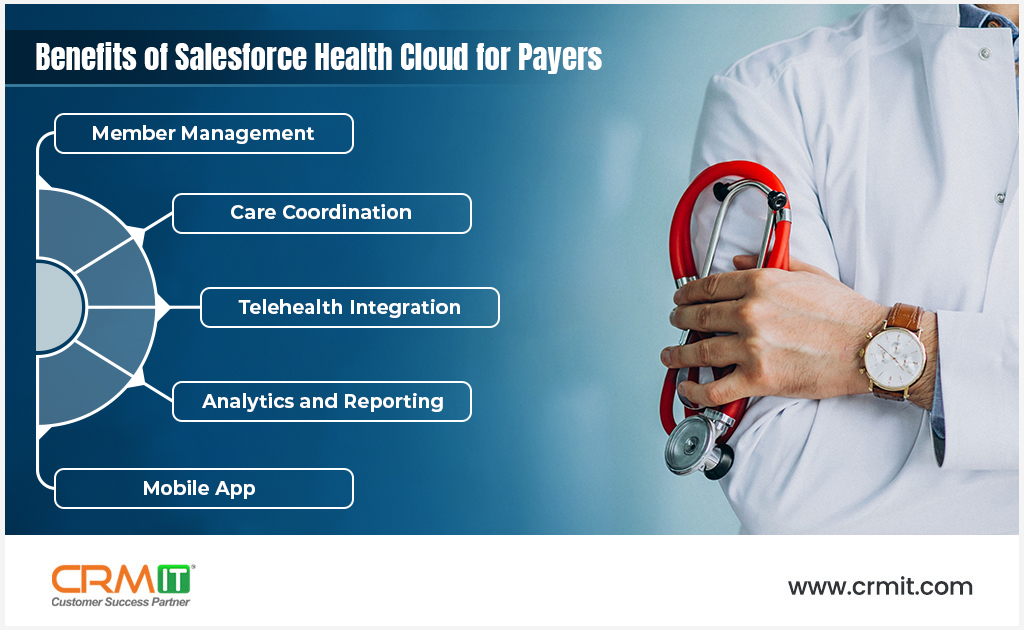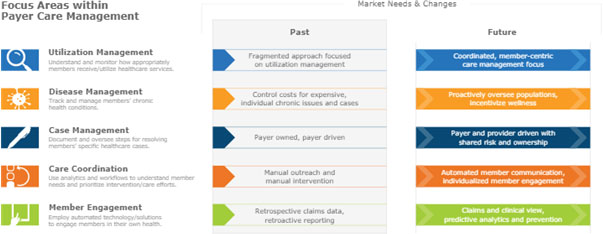The Future of Care Coordination & Healthcare Payers

In today’s healthcare landscape, payers are tasked with not only providing coverage but also coordinating care for their members. Coordinating care involves managing multiple providers, ensuring that members receive the right care at the right time, and reducing duplication of services. Salesforce Health Cloud is a solution that can help payers achieve these goals.
Why, Healthcare Payers Prioritize Care Coordination
Top healthcare payers prioritize care coordination as a way to improve member outcomes and reduce costs. According to a survey by Deloitte, 82% of healthcare payers have made care coordination a top priority.
For example, UnitedHealthcare has implemented a program called UnitedHealthcare Connected. This program uses predictive analytics and real-time monitoring to identify members who may need extra care. The care team then works with the member and their providers to develop a personalized care plan.
Another example is Anthem’s CareMore program, which focuses on coordinating care for members with chronic conditions. The program provides in-home care, transportation to appointments, and medication management to ensure that members receive the care they need.
Statistics and Quotes: According to a report by Grand View Research, the global care coordination software market is expected to reach $7.9 billion by 2027. This growth is driven by the increasing need for coordinated care as the population ages and the prevalence of chronic diseases increases.

Trends and Forecast for Care Coordination in Healthcare Payers:
The use of technology to facilitate care coordination is a trend that is expected to continue in the coming years. This includes the use of artificial intelligence and machine learning to identify members who may need extra care and the use of mobile apps to help members manage their health.
Another trend is the use of value-based care models. This involves paying providers based on the quality of care they provide, rather than the volume of services they deliver. This incentivizes providers to coordinate care and improve member outcomes.
Benefits of Salesforce Health Cloud for Payers:
Salesforce Health Cloud offers a variety of features for healthcare payers to improve care coordination and member management. Some key features that can be deployed include:
Member Management: Health Cloud offers a centralized location for member data, enabling payers to track member activity and provide proactive care management.
Care Coordination: The platform offers a care coordination module that allows for seamless collaboration between payers, providers, and members. This includes tools for tracking care plans, communicating with providers, and ensuring care is delivered in a timely and efficient manner.
Telehealth Integration: With the rise of telehealth services, Health Cloud offers seamless integration with telehealth platforms to help payers improve virtual care delivery and member engagement.
Analytics and Reporting: Health Cloud’s built-in analytics and reporting tools enable payers to identify trends and patterns in member data, enabling them to make data-driven decisions to improve member outcomes.
Mobile App
Health Cloud mobile app enables payers to provide members with access to their health information, including care plans, medication reminders, and virtual visits, on-the-go.
Overall, deploying these key features in Health Cloud can help healthcare payers improve member engagement, care coordination, and ultimately, member outcomes.
One of the key benefits of Salesforce Health Cloud is that it enables payers to have a complete view of a member’s health history. This includes medical records, lab results, and medications. This comprehensive view allows care teams to make informed decisions and develop personalized care plans for each member.

In conclusion, care coordination is a top priority for healthcare payers, and Salesforce Health Cloud is a solution that can help them achieve their goals. By providing a centralized platform for care teams to collaborate and share information, payers can improve member outcomes and reduce costs. As the population ages and the prevalence of chronic diseases increases, the use of technology to facilitate care coordination is expected to become even more important.
Tags: Care Coordination, Healthcare Payers, Salesforce, Salesforce Health Cloud

